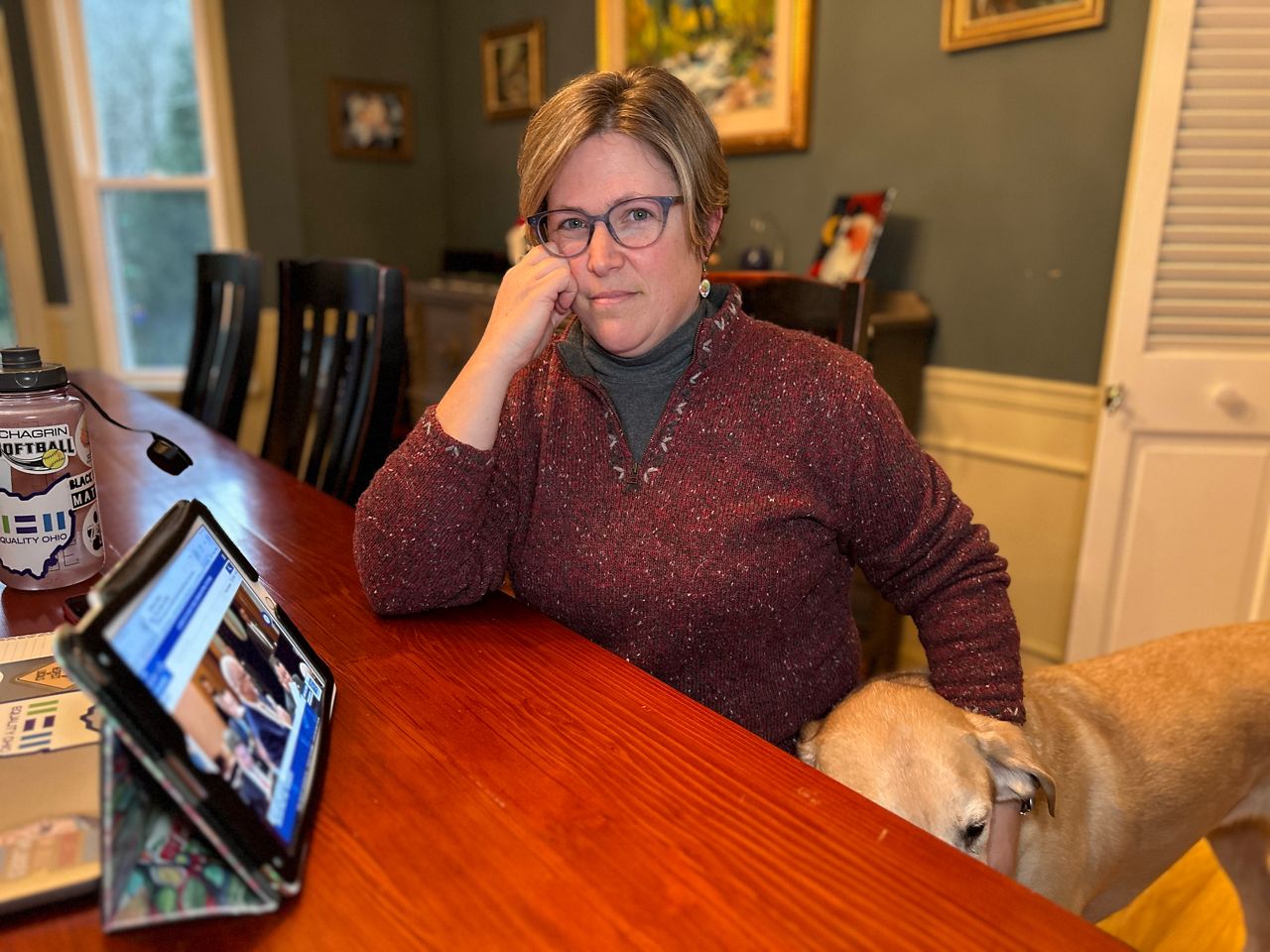OHIO — Transgender adults in Ohio are fearing for their livelihoods after proposed rules from the state add requirements for people seeking gender-transition health care. The rules were proposed by Gov. DeWine in collaboration with the Ohio Department of Health and the Department of Mental Health and Addiction Services.
“I think it’s going to set us back a decade,” said Ares Paige, the outreach administrator at the Bayard Rustin LGBTQIA+ Resource Center in Akron.
Paige is a transgender man who’s been living as his authentic self for more than 13 years.
“I have no desire to de-transition, no regrets,” Paige said. “I’m perfectly happy in my life, actually. I have a very normal life.”
Among other things, one part of the proposed rules requires health care providers to employ or have a contractual relationship with a psychiatrist, an endocrinologist and a medical ethicist in order to provide gender-transition care to a patient. Another part requires adults under 21 to go through six months of mental health counseling before receiving any type of gender-transition care.
“No one should ever have to ask to do what they want to do with their own body,” Paige said. “No one owns anyone else’s body. The minute that someone outside of the person living in the body starts making rules for the body, that is slavery.”
Paige calls the rules redundant. He said he already has a medical team established through his primary care doctor.
“I’d have to either reestablish my care team or add people to it and then, on top of that, I don’t know that my insurance would approve of me going to these extra specialists either,” Paige said.
DeWine announced the draft rules on January 5th, the same day he signed an executive order banning gender-transition surgeries for minors in Ohio. DeWine stated it’s all to protect both transgender children and adults in the state.
“I’m concerned that adults there might be these fly-by-night operations that set themselves up and start dispensing hormones, but without the psychiatric care that we know is so very, very important,” DeWine said.
Teagan Vaughn is the director of gender-affirming care at Equitas Health, one of the largest LGBTQ+-serving health care organizations in the United States. As a trans woman, she said the rules do the opposite of protect; they prevent trans people from receiving care. She said requiring multiple specialists to be involved in each patient’s care is not feasible or necessary, as medical care should be individualized to meet each patient’s needs.
“It’s going to be very difficult,” Vaughn said. “At Equitas Health, we’re going to do everything we can to continue providing the same great care for people and we’re confident we’ll be able to do so. But for those smaller, like perhaps more rural primary care settings where it is maybe just a couple of nurse practitioners in a position, it’s going to be near impossible.”

The proposed rules are not in effect but are already having an impact. Minna Zelch, the mother of a 19-year-old transgender daughter said she fears they’ll have to move out of Ohio if these rules go through as she said the state will have some of the most restrictive regulations on transgender health care for adults in the country.
“We’ve been told good riddance,” Zelch said. “They’re trying to basically exterminate transgender people by making it so hard for them to live that they either leave the country, leave the state, go somewhere else, or decide that it’s not worth them to live anymore. As a parent whose child has been down that road before she started care, it is absolutely terrifying.”
DeWine’s press secretary Dan Tierney said these rules were crafted after speaking with multiple sources who provide gender-transition care and that using a multidisciplinary care team is a common practice in health care.
“All areas of medicine do have some guardrails to make sure that people are receiving quality care, that’s why there’s hospital regulations, that’s why there’s medical board regulations,” Tierney said. “The idea that medicine is practiced without safeguards and without regulations is a fallacy. That happens in this country. It happens in every state. It happens in Ohio and nobody receiving care should, you know, expect that they have nothing but the best for them from their facilities here in the state of Ohio.”
Tierney added the state does not intend for the proposed rules to prevent people who’ve already transitioned from continuing their care.
“There’s people reading this saying they would have to stop that care, go through counseling before they could restart it. That is not the case,” Tierney said. “The intention was always to apply for care moving forward. We recognize that if somebody is on a medical treatment, if they were to stop that treatment cold turkey, that could, you know, have, you know, health consequences that are that we would want to avoid.”
Paige is unsure about the future of his health care but said the trans community is resilient and strong. He said they may change the rules but they can’t change who is he.
“Once a thing knows that it exists, it’s not going to let you make it not exist anymore,” Paige said. “It’s going to want to preserve itself.”
People can submit public comments for part of the draft rules to odhrules@odh.ohio.gov by no later than Monday, February 5th. For more information about the proposed rules, visit here.










